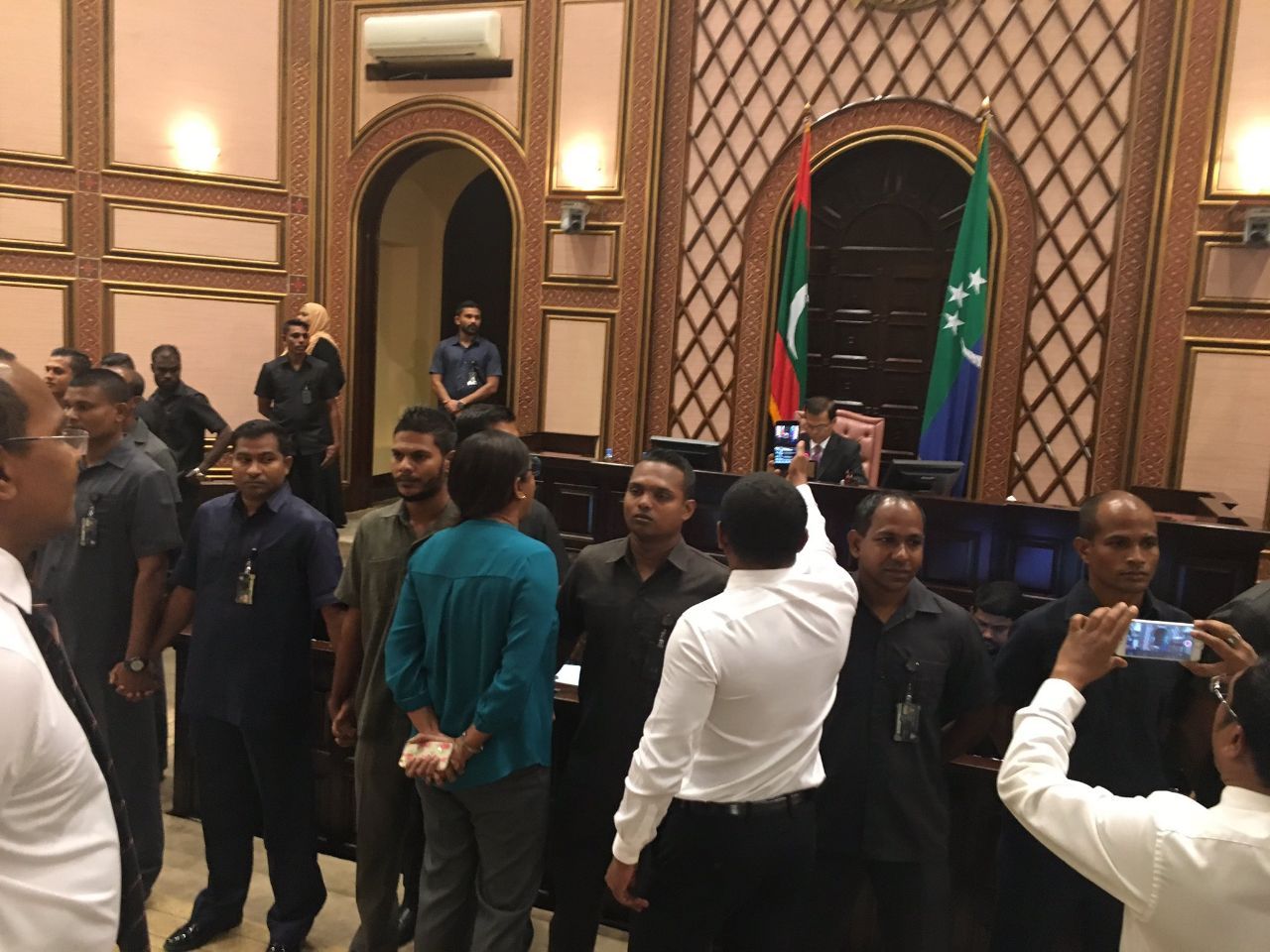Maldives opposition boycott: (back)firing on all cylinders?
Opposition lawmakers have been boycotting parliamentary proceedings since the contentious disqualification of defectors from the ruling party was used to quash a majority-backed no-confidence motion against the parliament speaker.

13 Dec 2017, 09:00
Less than half of the Maldives parliament was present for a vote that saw a record-breaking budget get the green light with no debate or scrutiny.
Opposition lawmakers have been boycotting parliamentary proceedings since the contentious disqualification of defectors from the ruling party was used to quash a majority-backed no-confidence motion against parliament speaker Abdulla Maseeh last July.
They say sittings presided over by Maseeh and conducted in the absence of the unseated lawmakers are illegitimate and unlawful.
So the MVR28 billion budget, the biggest in the country’s short but turbulent history since independence, sailed through within a week of being submitted to parliament.
Become a member
Get full access to our archive and personalise your experience.
Already a member?
Discussion
No comments yet. Be the first to share your thoughts!
No comments yet. Be the first to join the conversation!
Join the Conversation
Sign in to share your thoughts under an alias and take part in the discussion. Independent journalism thrives on open, respectful debate — your voice matters.




